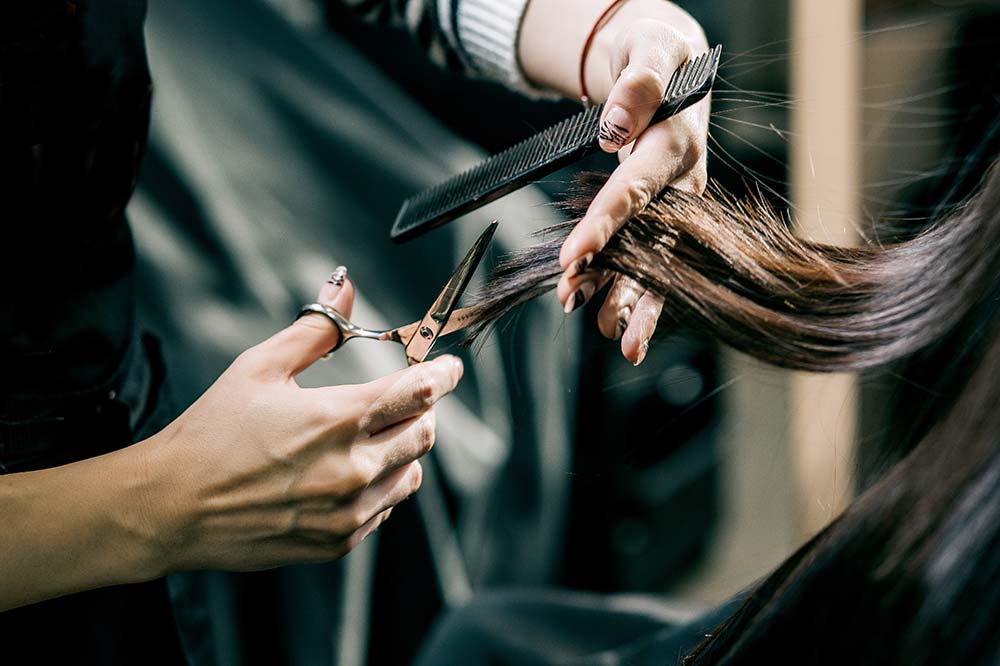Up until the 1990s, when early millennial women were coming of age in India, salons were sustainable by default. Take waxing for instance: a stainless-steel saucepan with hot wax and a knife (both reusable many times over), and cloth strips that would be sterilised and used time and again, until they were threadbare. But then, we also rapidly discovered the dangers of reusable cloth strips and the benefits of one-time-use hygiene products, especially as far as skin health was concerned. In a post-covid world, the same millennial woman would probably pick out roll-on wax (plastic all the way) and at least 10-15 disposable wax strips each time she went to the spa. And that’s just one single service for which she opts.
According to the Germa data gathering and statistics platform, Statista, each washbasin in a hair salon wastes nearly 150 gallons of water every day. Is there any way to reduce wastage and reuse resources?
“We are experiencing the need for a shift and trying to implement it,” says Deepak Jalhan, Creative Director/Educator – Looks Privé. “There are different aspects to sustainable practices. It could be as simple as the water we offer the customer. Even before Covid, we had stopped the use of plastic bottled water and reverted to serving RO water in a glass. Secondly, we are looking at sustainability in terms of the products we use and their packaging. We’ve started using food-grade plastic for product packaging and our carbon footprint is lesser, because we opt for huge sizes, such as five litres that last longer. We’re also researching on equipment and tools that are more sustainable.
“Energy-efficient interiors are another focus area. By using locally-sourced natural materials and power-saving lights, we can reduce the load on the planet. We are also looking at reusing water waste generated from services, such as shampoos and pedicures in toilet flushes. So far, consumers have been receptive to the changes, but we still have a long way to go – these are baby steps. Ideally, in five to10 years, I would like to see an eco-friendly manufacturing plant set up to recycle salon waste, such as hair and aluminium foil into floor mats.”

Hair waste is one of the key by-products of the salon industry. According to a report in Matrubhoomi , around 827 tonnes of hair waste is generated from 23,785 barber shops and 12,303 salons across Kerala alone. When it isn’t disposed of properly, hair waste can take years to decompose. To get around this, hair can be recycled by making donations towards wigs or, with a little training, can be used as compost for your salon. In fact, hair can also be used extensively to clean up oil spills in the ocean.
Aluminium foil is another hugely discarded material, even though it can be recycled with little energy, and processed into new foil or cans. Paper, cardboard, glass and razor blades are also recyclable. The products that are used in salon services matter as well. For instance, scrubs made from microbeads (tiny plastic non-biodegradable balls that empty out into water bodies) can easily be replaced by natural materials such as oat grain, sea salt or sand. Try to refill bottles and containers from product companies, rather than buying a new stash every time.
Salons can also unplug all devices that are lying unused. Dryers and steamers that stay plugged in are constantly using electricity. Plan your laundry cycles effectively to save water. Work with suppliers to package wholesale shipments sustainably. Each pair of spa slippers does not need its own plastic cover. Consider low-flow faucets and taps. Switch to low-chemical or chemical-free products.
On the other hand, it is important for a salon to set realistic goals for themselves. At the end of the day, it’s a business and these changes have to be cost-effective. Educating your customers about the sustainability policies and agenda is also crucial to thriving.
Celebrities have been doing their bit to ensure that their beauty practices are sustainable. Emma Watson uses reusable cloth makeup remover pads, rather than use-and-throw ones. A trusted brand like Dr. Hauschka has a fan following in celebrities like Jennifer Aniston and Anne Hathaway, thanks to their products, which follow sustainable practices and methods of production. Selena Gomez’s beauty brand, Rare Beauty, uses 100 per cent recyclable boxes that are certified by the Forest Stewardship Council.
Bony Sasidharan, Creative Head – Schwarzkopf Professional India, says, “There are brands already available in the market with a clear sustainability approach and many others have now taken the plunge too. Reducing salon waste comes with intensive practice and training. It should be a mandatory part of the training process for any new recruit. A salon can opt for reusable or recyclable products. They must ensure no wastage of water and electricity, and to use and wash salon towels wisely. They must also train their staff to segregate salon waste effectively. Certain brands are taking necessary steps towards being sustainable and using recycled materials for packaging, while others have even switched to solar energy for electricity. It is a myth that the shift to sustainable business models means added costs for salons and consumers. It may seem like an expensive proposition, but most of these expenses are not recurring. Contrary to popular belief, it is possible to switch without compromising on hygiene, if one follows proper practices. Sustainability should become a habit, not a choice.”